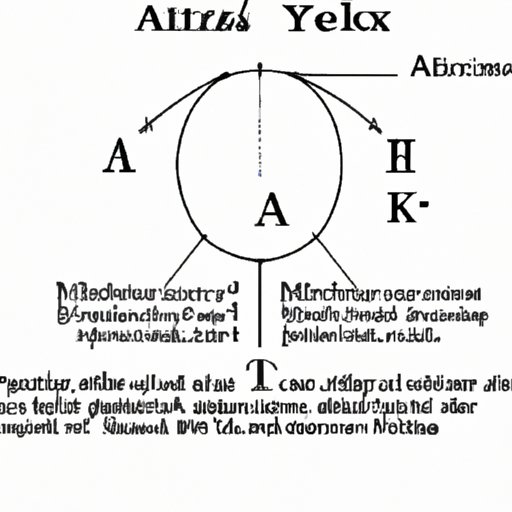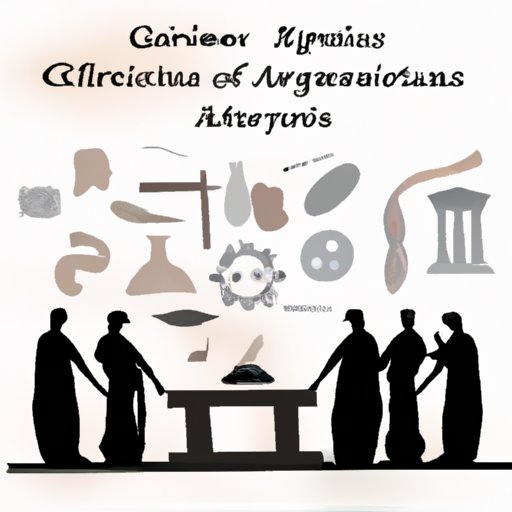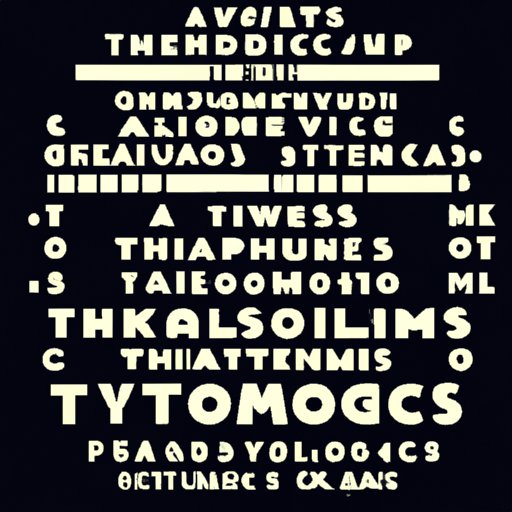Introduction
The Ancient Greeks are renowned for their profound contributions to philosophy, science, and mathematics. Their innovations have left an indelible mark on Western civilization, as well as our understanding of the world around us. From Pre-Socratic philosophers to the Hellenistic period, this article will explore the crucial role that Ancient Greek thinkers played in the development of science and mathematics.
Historical Overview of Contributions
The first recorded philosophical musings of Ancient Greece can be traced back to the Pre-Socratic period, which began around 600 BCE. This period was marked by a shift away from traditional mythological explanations of natural phenomena, towards a more rational approach. The pre-Socratics sought to explain the universe through naturalistic means, such as atomism and materialism. Notable pre-Socratics include Thales, Anaximander, Pythagoras, and Heraclitus.
The next major advancement in Greek thought came with the dialogues of Plato and Aristotle. Plato’s work emphasized the importance of theoretical knowledge and the power of reason, while Aristotle’s focus was on empirical observation and experimentation. Both thinkers had a profound impact on subsequent philosophical developments, particularly in the areas of logic, metaphysics, ethics, and politics.
The Hellenistic period saw the emergence of new philosophical schools such as Stoicism, Epicureanism, and Skepticism. These philosophies focused on questions of morality, human nature, and the purpose of life. In addition, the period saw the rise of mathematicians such as Euclid and Archimedes, who made significant advances in the fields of geometry and trigonometry.
Crucial Role of Ancient Greek Philosophers
The contributions of Ancient Greek philosophy cannot be overstated. Many of their ideas are still relevant today, and they laid the foundations for modern scientific inquiry. One of the most important concepts developed by the Greeks was the distinction between rationalism and empiricism. Rationalists emphasize the importance of deductive reasoning and logical argument, while empiricists focus on the evidence provided by sensory experience.
The Greeks also developed the concept of the dialectic method, in which two opposing arguments are presented and reconciled through discussion. This method has been used in a variety of fields, ranging from theology to political science. Finally, the Greeks pioneered the field of natural philosophy, which seeks to explain the workings of the universe without relying on religious or superstitious beliefs.

Impact of Scientific Revolution on Ancient Greek Thought
The scientific revolution of the 16th and 17th centuries saw a dramatic shift in scientific thinking. Figures such as Copernicus, Galileo, Kepler, and Newton challenged many of the ideas put forth by the Ancient Greeks, particularly in the fields of astronomy and physics. In addition, the works of Francis Bacon and René Descartes helped to usher in a new era of scientific inquiry, one that relied heavily on the principles of empiricism.
Although the scientific revolution had a profound effect on the way we think about science and the universe, it was still heavily influenced by the ideas of the Ancient Greeks. For example, the heliocentric model of the solar system proposed by Copernicus was based on the theories of Aristarchus of Samos, an ancient Greek astronomer.

Influence of Ancient Greek Mathematics
The Ancient Greeks made significant advances in the field of mathematics, particularly in the areas of geometry, number theory, and trigonometry. Euclid’s Elements, which is considered to be the foundation of modern mathematics, is based on the work of earlier Greek mathematicians such as Pythagoras, Thales, and Eudoxus. Number theory was first developed by the Pythagoreans, who discovered the relation between numbers and harmonic music. Trigonometry was developed by Hipparchus of Nicaea, who used it to calculate the positions of stars and planets.

Contribution of Ancient Greek Scientists
In addition to their accomplishments in mathematics, the Ancient Greeks made significant contributions to the fields of astronomy, physics, and medicine. Astronomers such as Hipparchus and Ptolemy developed models of the solar system that were accurate for their time. Physicists such as Democritus and Leucippus formulated the atomic theory of matter, which postulated that all matter is composed of tiny, indivisible particles. Finally, physicians such as Hippocrates and Galen advanced the field of medicine through their discoveries in anatomy and physiology.
Conclusion
The contributions of Ancient Greek thinkers to science and mathematics cannot be understated. From Pre-Socratic philosophers to the mathematical breakthroughs of Euclid and Archimedes, their ideas have shaped the way we think about the world around us. Their legacy continues to influence modern scientific inquiry, and their influence can be seen in the works of scientists such as Copernicus, Galileo, and Newton. The Ancient Greeks may be gone, but their impact on science and mathematics is still felt today.
(Note: Is this article not meeting your expectations? Do you have knowledge or insights to share? Unlock new opportunities and expand your reach by joining our authors team. Click Registration to join us and share your expertise with our readers.)
